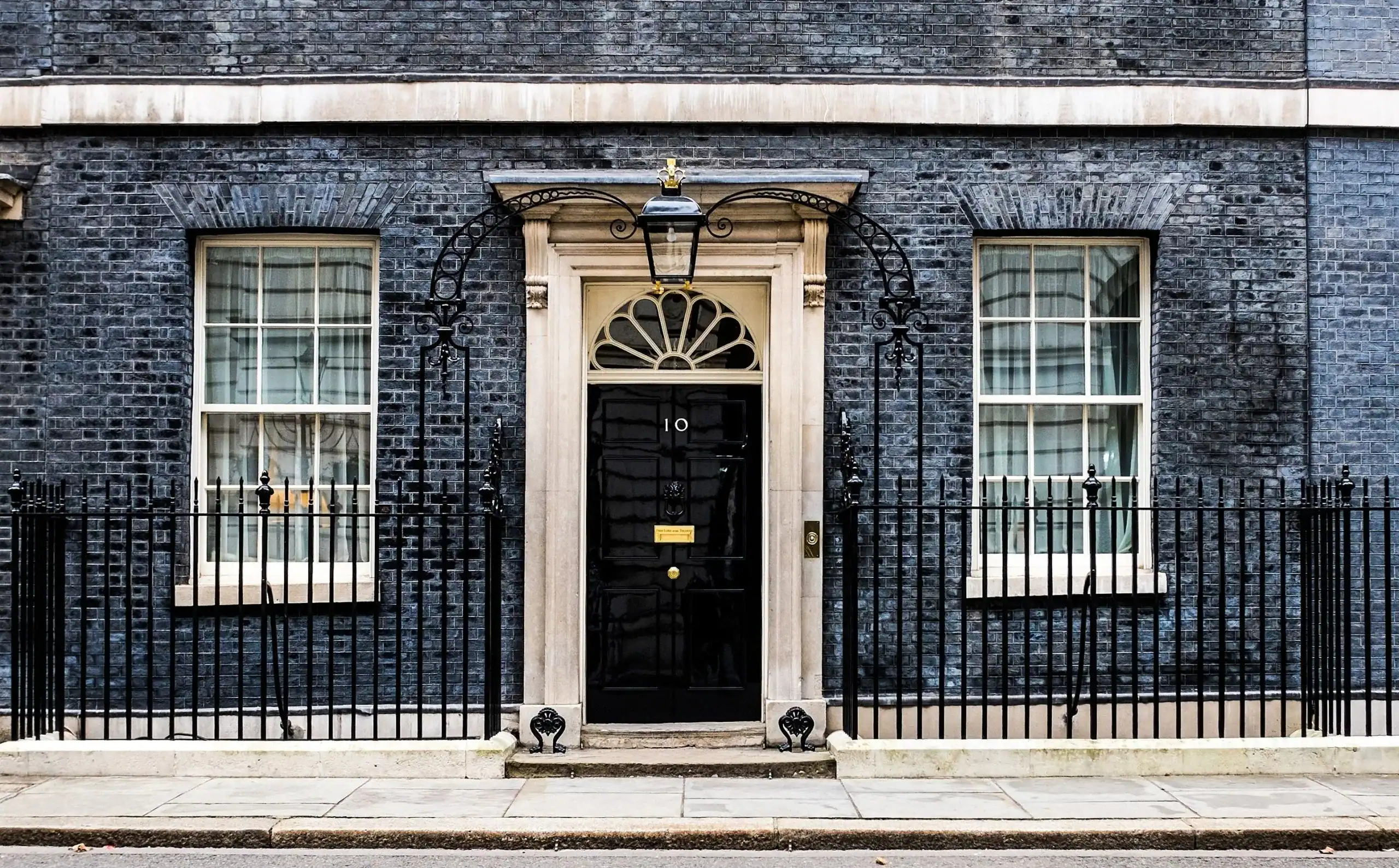5 Autumn Budget tax predictions and what they could mean for you

16 September 2025
The Budget is an important date in the calendar because it is the chancellor’s opportunity to give an economic forecast and announce upcoming plans for spending and taxation. This year, the Budget will happen on 26 November.
As you may have seen, the UK faces serious ongoing economic challenges, and chancellor Rachel Reeves is having difficulty balancing the public finances. Consequently, there is a strong chance that she will make significant announcements in the upcoming Budget, particularly regarding tax, and you may be concerned about how any changes are likely to affect you.
Read on to learn about five Autumn Budget predictions and what they could mean for you.
1. Extending the freeze on Income Tax thresholds
The amount of Income Tax you pay is calculated based on certain thresholds. As of 2025/26, the first £12,570 you earn – your Personal Allowance – is usually tax-free. If you earn more than £100,000 a year, your Personal Allowance is tapered down, disappearing completely at £125,140.
On any earnings above your Personal Allowance, you will pay:
- The basic Income Tax rate of 20% on income between £12,571 and £50,270
- The higher rate of 40% on income between £50,271 and £125,140
- The additional rate of 45% on income that exceeds £125,140.
These thresholds have been held at their current levels since 2021, with the freeze set to end in 2028. The government also reduced the additional-rate threshold from £150,000 to £125,140 in April 2023.
Since 2021, average wages have increased, meaning that more of your income could be pulled into the taxable range, and you may be more likely to move into a higher tax bracket.
This effect – known as “fiscal drag” – could mean you pay more Income Tax than you previously did, even though the rate has not officially changed.
Extending the freeze on Income Tax thresholds beyond 2028 is one way the chancellor could raise additional revenue in the coming years.
2. Further changes to Inheritance Tax
In her 2024 Budget, Reeves announced plans to potentially make pensions liable for Inheritance Tax (IHT), and the government has since confirmed this will take effect from April 2027 onwards.
In addition to this planned change, the chancellor could make further amendments to IHT this November.
This might include reducing the total value of IHT-free gifts you can pass to your beneficiaries each year. The government is also reportedly considering a lifetime cap on the total amount a person can gift in their lifetime.
Alternatively, Reeves could lower the “nil-rate bands” – the amount you can pass on without triggering an IHT charge – or keep them frozen. They are already fixed at their current rates until 2030.
Any of these changes to the IHT rules could mean that your family faces a larger bill when you pass away.
3. Removing certain tax benefits for pensions
Your pensions have several significant tax benefits and, in the lead up to a fiscal event, there is often concern that the government will remove or reduce some of these advantages.
In 2025/26, you can take the first 25% of your pension as a tax-free commencement lump sum, up to the Lump Sum Allowance (LSA) of £268,275. The government could reduce or abolish this tax-free lump sum, meaning you would potentially pay more Income Tax when drawing from your pension.
Alternatively, the chancellor may remove certain tax benefits you enjoy when paying into your pension. For instance, you can normally claim tax relief on your contributions, at your marginal rate of Income Tax. The basic rate is added by your provider, and if you self-assess, you could claim higher- or additional-rate relief. If this were to change, saving into a pension may not be as tax-efficient as it once was.
HMRC also recently published research into potential changes to salary sacrifice. This is a scheme that offers an alternative way to contribute to your pension and can potentially reduce the Income Tax and National Insurance contributions (NICs) you pay. The research suggests that the government is considering removing certain tax benefits of salary sacrifice.
Any changes to the tax efficiency of pensions could significantly influence your financial plan, so it is important to seek professional advice to help you navigate any new legislation.
4. Changes to property taxes
Property tax is another area that the government is reportedly targeting in the upcoming Budget.
According to the Guardian, Reeves is considering replacing Stamp Duty with a new tax targeting properties worth more than £500,000.
The government may also review Council Tax and replace it with a local property tax designed to more accurately reflect the current value of homes.
This levy may apply to the owner of a property, rather than the residents, meaning that landlords might have to pay more tax in the future. Further to this, the government may be considering charging NICs on rental income.
Consequently, both homeowners and buy-to-let investors could be affected by revised property taxes.
5. Increased taxes on investments
The chancellor already increased the rate at which you pay Capital Gains Tax (CGT) on non-property assets with immediate effect in her 2024 Budget. As a result, you could pay more tax when selling certain assets, including stocks and shares outside an ISA.
Building on her 2024 changes, Reeves could further increase taxes on investments in her upcoming Budget and there are several ways she could achieve this.
For example, as of 2025/26, you can make £3,000 in profits from selling qualifying assets each year before paying CGT. This is your Annual Exempt Amount, and if the government were to reduce or scrap this tax break, you may pay CGT on a larger portion of your gains.
Alternatively, the chancellor could make changes to Dividend Tax. This might include increasing the rate at which you pay tax on your dividend income. Conversely, Reeves could reduce the Dividend Allowance – the total amount you can earn from dividends each year before triggering a tax charge.
If the chancellor were to announce any of these changes, you would need to consider how you manage your investments to ensure you are being as tax-efficient as possible.
We can help you understand and navigate any changes announced in the Budget
There is much speculation about which taxes might increase in the Budget because the chancellor has many options for raising additional revenue.
Regardless of what she announces, we can help you understand precisely how legislative changes will affect your financial plan. We can then discuss options for mitigating tax, potentially adjusting the ways in which you build and hold wealth.
Ultimately, this means you can continue working towards your long-term financial goals, despite any tax increases.
Get in touch
We are here to support you if you are concerned about the upcoming Autumn Budget on 26 November.
Email info@depledgeswm.com or call 0161 8080200 for more information.
Please note
This article is for general information only and does not constitute advice. The information is aimed at retail clients only.
All information is correct at the time of writing and is subject to change in the future.
Please do not act based on anything you might read in this article. All contents are based on our understanding of HMRC legislation, which is subject to change.
Levels, bases of and reliefs from taxation may be subject to change and their value depends on the individual circumstances of the investor.
The Financial Conduct Authority does not regulate tax advice or estate planning.
A pension is a long-term investment not normally accessible until 55 (57 from April 2028). The fund value may fluctuate and can go down, which would have an impact on the level of pension benefits available.
The tax implications of pension withdrawals will be based on your individual circumstances. Thresholds, percentage rates, and tax legislation may change in subsequent Finance Acts.
The value of your investments (and any income from them) can go down as well as up and you may not get back the full amount you invested. Past performance is not a reliable indicator of future performance.
Investments should be considered over the longer term and should fit in with your overall attitude to risk and financial circumstances.
The Financial Conduct Authority does not regulate buy-to-let (pure) and commercial mortgages.









